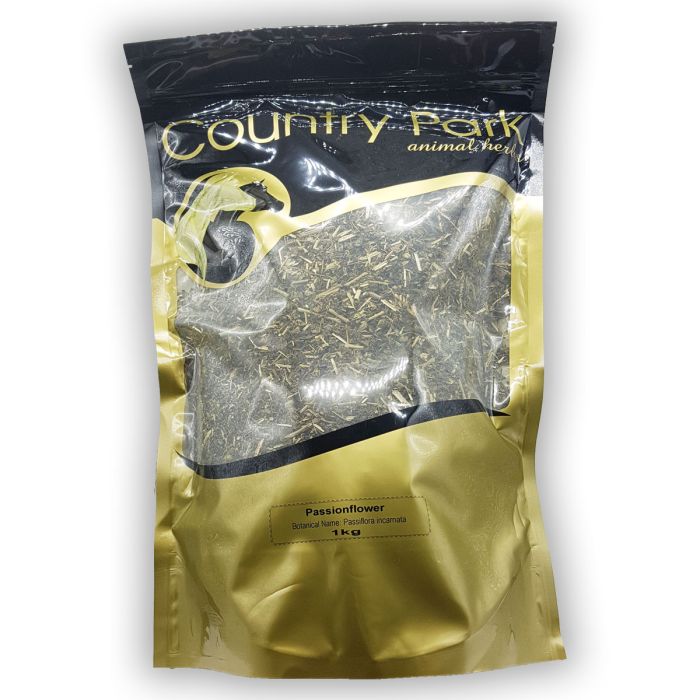Passionflower 1kg
CP-pass
Passionflower aids in treating a number of bacteria, moulds and yeasts as well as aiding to control aggressive behaviour. ACTIONS include: sedative, analgesic, anti-spasmodic, peripheral vasodilator. CAUTION: Avoid high doses during pregnancy.
Passionflower (Passiflora incarnata)
Country Park
This herb derives its name from its beautiful white & pink/purple flowers which reminded Spanish explorers of The Passion of Christ.
Used in native North and Central American herbal traditions, passionflower has sedative and tranquilising properties and is best known for its value in bringing (non-addictive) relief to disturbed sleep patterns and insomnia.
Widely acknowledged as a good remedy for anxiety, tension and irritability, passionflower can be of benefit to horses who are generally nervous and apprehensive as well as those who are distressed and restless due to a current illness.
In addition to its directly calming effects it also has analgesic (pain-relieving) and anti-spasmodic properties and can be useful, often in conjunction with other herbs, for the moody mare and the horse who has tight, sore muscles due to habitual tension.
One of passionflower’s phytochemicals – passicol – fights a number of bacteria, moulds and yeasts.
ACTIONS include: sedative, analgesic, anti-spasmodic, peripheral vasodilator.
CAUTION: Avoid high doses during pregnancy.
Current use
The fresh or dried whole plant as well as their preparations are accepted for medicinal use in Germany, France, and other European countries for the treatment of nervous anxiety, in daily dosages equivalent to 0.5 to 2 g. of the herb, or 2.5 g in tea (about a teaspoon of the dried, ground herb).
Commercial preparations include tea, tinctures, fluid extracts, solid extracts, and even sedative chewing gums.
Passionflower is also combined with valerian and hawthorn in products used in Europe to treat digestive spasms, gastritis, and colitis.



